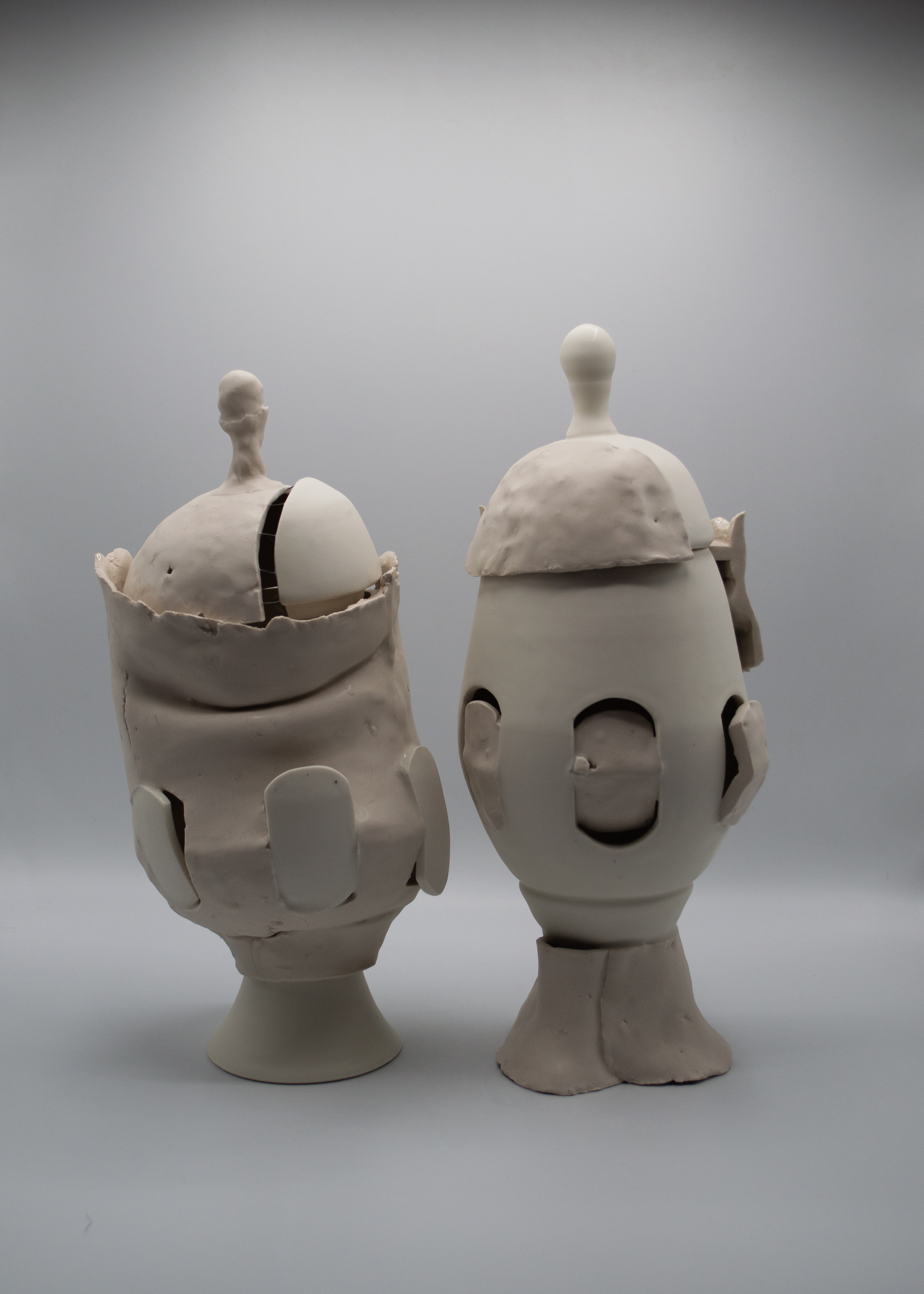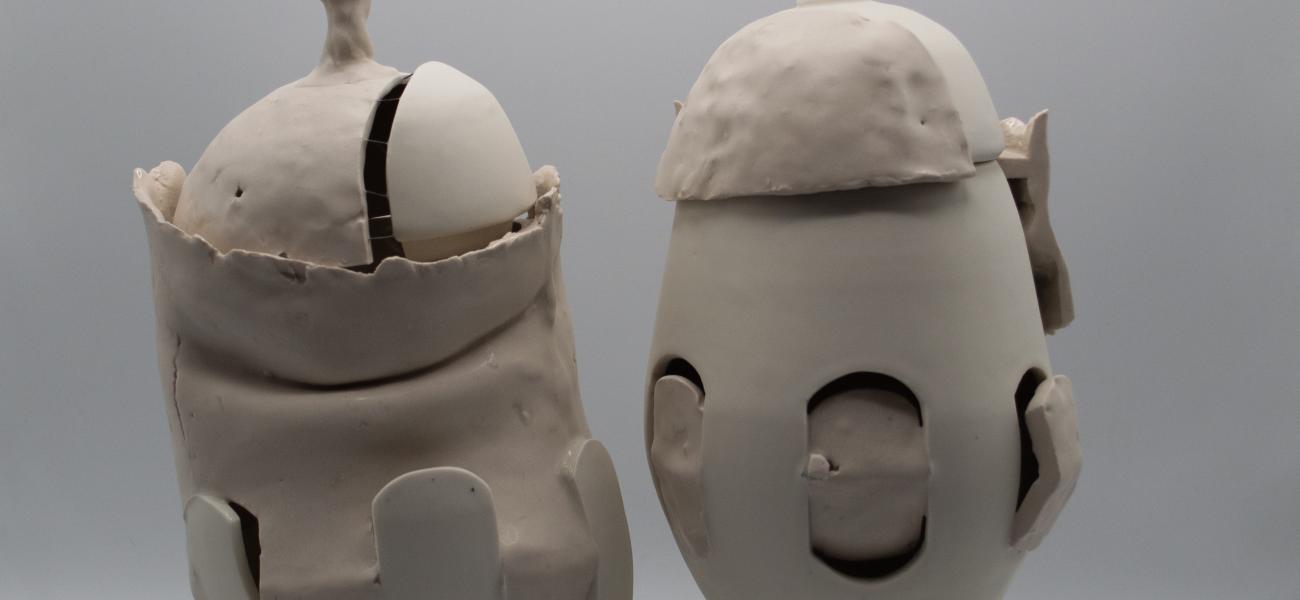Utilitarian ceramics poses a unique opportunity for assessment based on well-established industry standards. For me, these standards gave unequivocally clear-cut parameters for what constituted "good" or "bad" ceramics. As someone with a compulsive personality, this binary of good versus bad has always been a guiding force. Initially, finding that same binary in ceramics felt like coming home – a safety net – it gave me an evaluation system on which to fixate and measure my success or failure. After spending three years post-undergrad refining my skills, I entered graduate school, making wares that I focused entirely on form and function with an emphasis on precision. My goal was to create objects that are "worth" the space they inhabit.
 Eventually, I recognized that my obsession with perfection caused irritability and disappointment when my expectations – self-imposed or otherwise – were not met. This was true not only in my work but also in my personal life. I was in a constant mental battle to be a person "worth" the space I was inhabiting. Although this revelation was specific to me, these feelings of frustration and inadequacy are a shared experience. My work evolved from high-craft utilitarian ware to dysfunctional vessel forms. I began creating wheel-thrown vessels held to conventional quality standards and replicated vessels made using plaster slump molds of my physical body and the bodies of others. Before firing, the forms are cut apart and reassembled, mixing and matching conventional and body-cast sections to create two unique vessels, each with their own moments of imperfect beauty. My fixation on function and precision was exposed as a projection of my own insecurities around productivity, social performance, and failure. The uselessness of the objects and deskilling of my process became a rebellion against the stringent standards of perceived perfection.
Eventually, I recognized that my obsession with perfection caused irritability and disappointment when my expectations – self-imposed or otherwise – were not met. This was true not only in my work but also in my personal life. I was in a constant mental battle to be a person "worth" the space I was inhabiting. Although this revelation was specific to me, these feelings of frustration and inadequacy are a shared experience. My work evolved from high-craft utilitarian ware to dysfunctional vessel forms. I began creating wheel-thrown vessels held to conventional quality standards and replicated vessels made using plaster slump molds of my physical body and the bodies of others. Before firing, the forms are cut apart and reassembled, mixing and matching conventional and body-cast sections to create two unique vessels, each with their own moments of imperfect beauty. My fixation on function and precision was exposed as a projection of my own insecurities around productivity, social performance, and failure. The uselessness of the objects and deskilling of my process became a rebellion against the stringent standards of perceived perfection.
Graduate school taught me to “fail.” Or maybe, more importantly, this was the first time that perfection and precision were questioned as conceptual elements, rather than feats of craftsmanship. With the absence of perfection, I was able to engage in deeper self-reflection and material exploration.
These revelations have altered how I approach my practice. My process has evolved from a precision-driven manipulation to a give-and-take collaboration with material. Although I still value high levels of craftsmanship – I feel incredibly validated when I cut into a piece to reveal a well-thrown cross-section – I can also find equal joy in building expressively and intuitively. This union allows me to push the boundaries of the material and myself.


